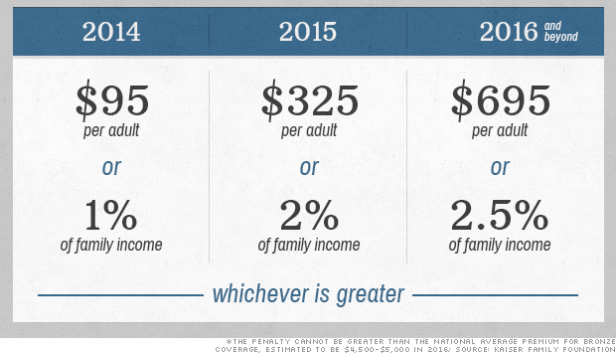
Today's is the day where all the pranksters and other people that you would like to see boiled in oil and smothered in honey and dripped in fireants have their day starting workplace rumors and causing chaos where they go.
And to the biggest joker that resides in the white house, there was some presser where the president was touting that 7.1 million people have signed up for obunglercare. ...He is doing this to settle down the democrats that supported this train wreck and are afraid of the bloodbath in November.
I have several salient points I would like to make.
1. You know when Obama is lying.....When his lips are moving. His credibility is zip.
2. How many of the 7.1 million that signed up lost their original plan due to Obunglercare?
3. Wasn't there 32 million uninsured people out there....how many of them are covered now...?
4. How many of the people that signed up get their premiums subsidized by the tax payer thereby
creating another entitlement program?
5. How many people had their hours cut and changed to part time because of the onerous cost of
Obunglercare?
Precursors of April Fools' Day include the Roman festival of Hilaria, held March 25, and the Medieval Feast of Fools, held December 28, still a day on which pranks are played in Spanish-speaking countries.
In Chaucer's Canterbury Tales (1392), the "Nun's Priest's Tale" is set Syn March bigan thritty dayes and two. Modern scholars believe that there is a copying error in the extant manuscripts and that Chaucer actually wrote, Syn March was gon. Thus, the passage originally meant 32 days after April, i.e. 2 May, the anniversary of the engagement of King Richard II of England to Anne of Bohemia, which took place in 1381. Readers apparently misunderstood this line to mean "March 32", i.e. April 1 In Chaucer's tale, the vain cock Chauntecleer is tricked by a fox.
In 1508, French poet Eloy d'Amerval referred to a poisson d’avril (April fool, literally "April fish"), a possible reference to the holiday. In 1539, Flemish poet Eduard de Dene wrote of a nobleman who sent his servants on foolish errands on April 1. In 1686, John Aubrey referred to the holiday as "Fooles holy day", the first British reference. On April 1, 1698, several people were tricked into going to the Tower of London to "see the Lions washed".
In the Middle Ages, up until the late 18th century, New Year's Day was celebrated on March 25 (Feast of the Annunciation) in most European towns.In some areas of France, New Year's was a week-long holiday ending on April 1. Many writers suggest that April Fools originated because those who celebrated on January 1 made fun of those who celebrated on other dates. The use of January 1 as New Year's Day was common in France by the mid-16th century, and this date was adopted officially in 1564 by the Edict of Roussillon.
According to Yahoo News, there is a conversation surrounding whether the apostrophe should be placed between the l and the s (as in "April Fool's Day"), or after the s (as in "April Fools' Day"). It argues that the latter is the common consensus, though adds that there are arguments either way.
- Spaghetti trees: The BBC television programme Panorama ran a hoax in 1957, showing Swiss harvesting spaghetti from trees. They had claimed that the despised pest, the spaghetti weevil, had been eradicated. A large number of people contacted the BBC wanting to know how to cultivate their own spaghetti trees. It was, in fact, filmed in St Albans. The editor of Panorama at the time Michael Peacock gave the go-ahead to the idea which was pitched by freelance camera operator Charles de Jaeger. Michael Peacock told the BBC in 2014 how he gave Charles de Jaeger a budget of £100 and sent him off. Mr Peacock said the respected Panorama anchorman Richard Dimbleby knew they were using his authority to make the joke work. Mr Peacock said Mr Dimbleby loved the idea and went at it with relish. Decades later CNN called this broadcast "the biggest hoax that any reputable news establishment ever pulled".
- In 1962, the Swedish national television did a 5-minute special on how one could get color TV by placing a nylon stocking in front of the TV. A rather in-depth description on the physics behind the phenomenon was included. Thousands of people tried it.
- Smell-o-vision: In 1965, the BBC purported to conduct a trial of a new technology allowing the transmission of odour over the airwaves to all viewers. Many viewers reportedly contacted the BBC to report the trial's success. In 2007, the BBC website repeated an online version of the hoax. As did Google in 2013, in tribute.
- In 2008, the BBC reported on a newly discovered colony of flying penguins. An elaborate video segment was even produced, featuring Terry Jones walking with the penguins in Antarctica, and following their flight to the Amazon rainforest
caring agency in the federal government. You know the one that likes to presume you guilty first in their court? The same one that was sicc'ed on conservative and tea party groups by supporters of the President?




So my penalty in 16 would be almost $4000... Any bets they enforce the hell out of that???
ReplyDelete